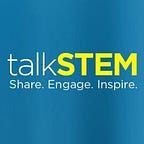It’s the month of March — Women’s History Month — a time to recognize the shoulders of the giants we stand on and to consider the strategy for the successful progress of our female-identifying children. We honor women who have worked in disparate fields — Amelia Earhart, Harriet Tubman, the countless, nameless women who served as “human computers” at NASA, Governors Miriam Ferguson and Ann Richards, and so many more.
Dallas Leads the Way
As we look ahead, in my home city alone, the 77,000 girls in Dallas Independent School District together with the girls in all other schools in our city represent the future of Dallas’s women. What lies in store for them as these girls and young women move through elementary, middle, and high school? I hope that they will be empowered by their experiences at school and in their communities, lead productive, happy lives and that their perspectives will enrich those of others. Ultimately, they will shape the future of our city.
We know that women’s economic equality is good for business in general and that upskilling and high-quality educational experiences produce gains in employment and income (though not always). In the 21st century, jobs in technology have tremendous potential for economic empowerment.
Artificial Intelligence Creates Jobs; Gender Equality Still Has a Long Way to Go
The spotlight today is on Artificial Intelligence (A.I.), the broad science of computers mimicking human abilities, and machine learning, the subset of A.I. that trains a machine how to learn. Approximately 133 million new jobs will be created worldwide by A.I. by 2022, according to the World Economic Forum’s 2018 Future of Jobs report.
The DFW Metroplex is excelling in the tech space, according to the Computing Technology Industry Association. Texas is the top state for tech professionals and businesses to do business and DFW came in at №2 on the list last year. The benefits of this progress are not reaching women, however.
According to this recent study, women hold only 24.5 percent of Dallas’ tech jobs, and those women earn only 77 percent of what their male counterparts earn.
Further, we are at a critical ethical juncture given that machine-learning algorithms, ever-present in advertising, hiring, financial services, policing, and many other fields, can propagate society’s existing race-, class- and gender-based inequities. In a 2020 documentary, “Coded Bias”, an M.I.T. Media Lab researcher discovered that the algorithm grounding facial recognition software could not detect her face until she put on a white mask. She soon uncovered the fact that most such artificial-intelligence programs are trained to identify patterns based on data sets that skew light-skinned and male. A.I. is grounded in real human data which is in turn based upon the history of how groups of people have participated in mainstream society. Inclusion of all groups, including women, is vital if we are to ensure that our city- and nation-wide systems are truly democratic.
So where does that leave our girls in K-12 schools, as they prepare for their adulthood, their economic futures, and their careers? During this Women’s History Month, I hope they are aware of the opportunities open to them to shape their future and the future of their communities. I hope the adults in their lives encourage them to be bold and to see all the rich choices available to them.
I hope their schools will ensure high-quality, relevant, and creative learning experiences that will provide the educational bedrock for our young women. Finally, I hope their future employers evaluate their existing practices with a strong commitment to gender equity.
Let’s push forward to a time where women’s history is no longer relegated to a single month.
